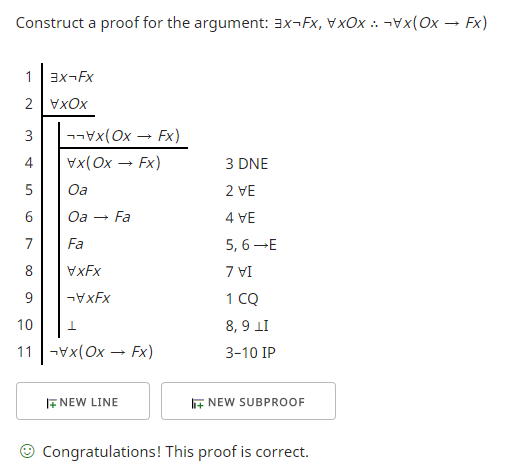Another question I'm struggling on with predicate logic:
Premises:
(There exists x) ~Fx
(For all x) Ox
Desired conclusion: ~(For all x)(Ox > Fx) (if Ox, then Fx)
My thoughts are to start by assuming the opposite of the conclusion, and then using subderivations to get Ox and Fx via horseshoe introduction. Help would be appreciated here - I'm not even sure if I'm starting in the right spot.

